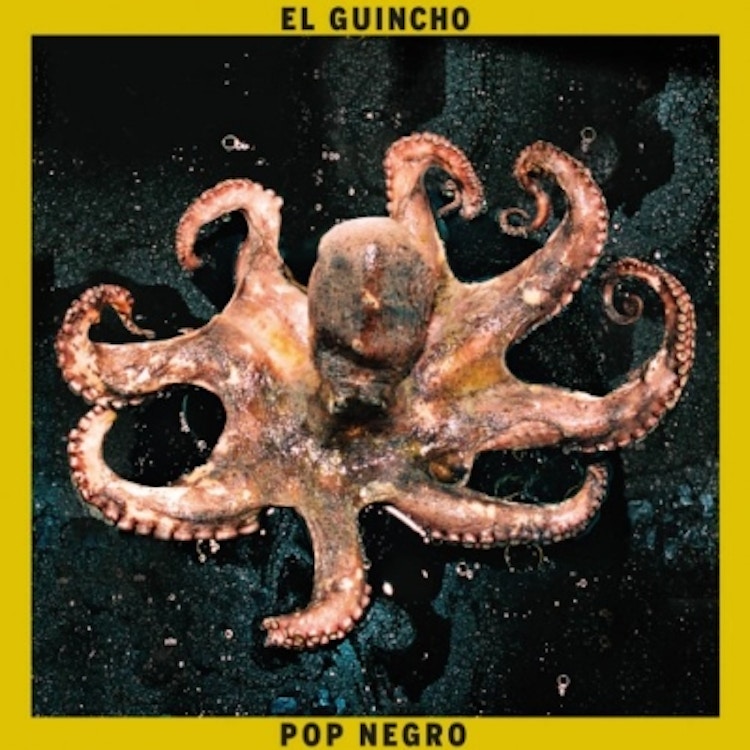"Pop Negro"

Thanks to guys like Pablo Díaz-Reixa, by now we’re all pretty used to the sound of one laptop clapping. Alegranza, his breakout 2007 LP as El Guincho – made more or less by himself at the computer—nonetheless felt like a street carnival, buzzing with communal energy in a tropical mélange of samples, chants and effects. Joyful, repetitive and revelatory, Alegranza inspired rather more waving than chilling, but it also signposted the arrival of a certain sound—hot, wet and cheap—since made more familiar by other solitary but resourceful tracklaying adepts. Some would say overly familiar; rightly or wrongly, a bloggy chillwave backlash looms.
Whatever the case may be in that regard, El Guincho’s swirling follow-up LP, Pop Negro, is windsurfing right past it. And I mean that literally: It costs money to get into a real studio, and after funds ran low for sessions in Berlin, Madrid, and Barcelona, Díaz-Reixa paid the piper by working as a windsurfing instructor in his native Canary Islands. (Label budgets ain’t what they used to be.) That kind of dedication speaks to a stubbornly authored vision, one that takes the craft of pop music seriously and wouldn’t be served by another trip to the effects library. But exactly what is that vision?
I could talk about crosscurrents of Afropop, tropicalia, calypso, folk, indie rock, and various flavours of Latin ballroom music, or about steel drums and saxophones and Balearic beats turned inside out, or about the intoxicating mingled scent of caipirinhas and sun tan lotion, and I’d be accurate. But really, what comes across is the El Guincho-ness of the record. Which is great, given how so many “well-produced” sophomore efforts of the less determined can lose their personality and charm in the face of a phalanx of seasoned session players and engineers, who all tend to have an opinion. The work here by people like noted R&B mixer Jon Gass (whose lengthy CV includes Destiny’s Child, Mary J. Blige, and all of the Jackson family) gives El Guincho the space to do his thing; the sound is clean but atmospheric, fairly saturated but not too fatiguing. The zillions of instruments and ideas flying this way and that each manage to find a little corner of the stereo field, and are never allowed to fall into mush. It’s a short record (barely 30 minutes) designed to be heard above the din of a party or alone with headphones.
Altogether, Pop Negro is a deeper, more varied, and perhaps even weirder album than its relatively low-fi predecessor. And yet, it must be said, it also lacks that frisson of one’s first encounter with Alegranza’s more exuberantly tribal, summery anthems like ‘Palmitos Park’ or ‘Cuando Maravilla Fui’. Maybe that’s because Díaz-Reixa is getting older or more considered with his approach, or maybe it’s because you can only hear El Guincho for the first time once. In any case, Pop Negro’s brand of intellectual hedonism is a different kind of fresh. Díaz-Reixa deserves not to rely on windsurfing tourists to fund his next project.
Get the Best Fit take on the week in music direct to your inbox every Friday

Sunflower Bean
Mortal Primetime

Self Esteem
A Complicated Woman

Emma-Jean Thackray
Weirdo





